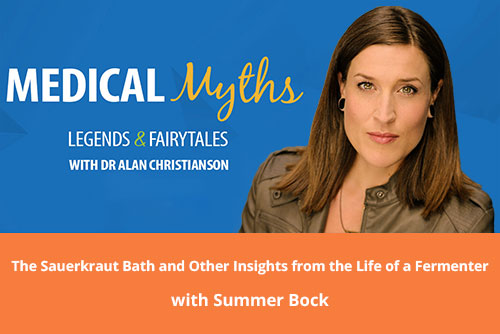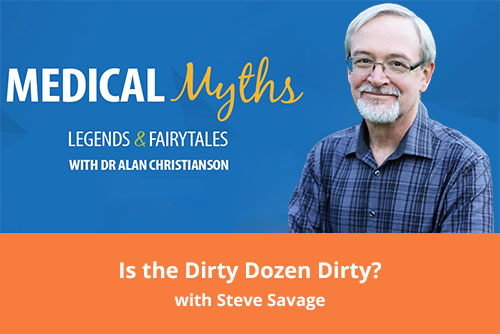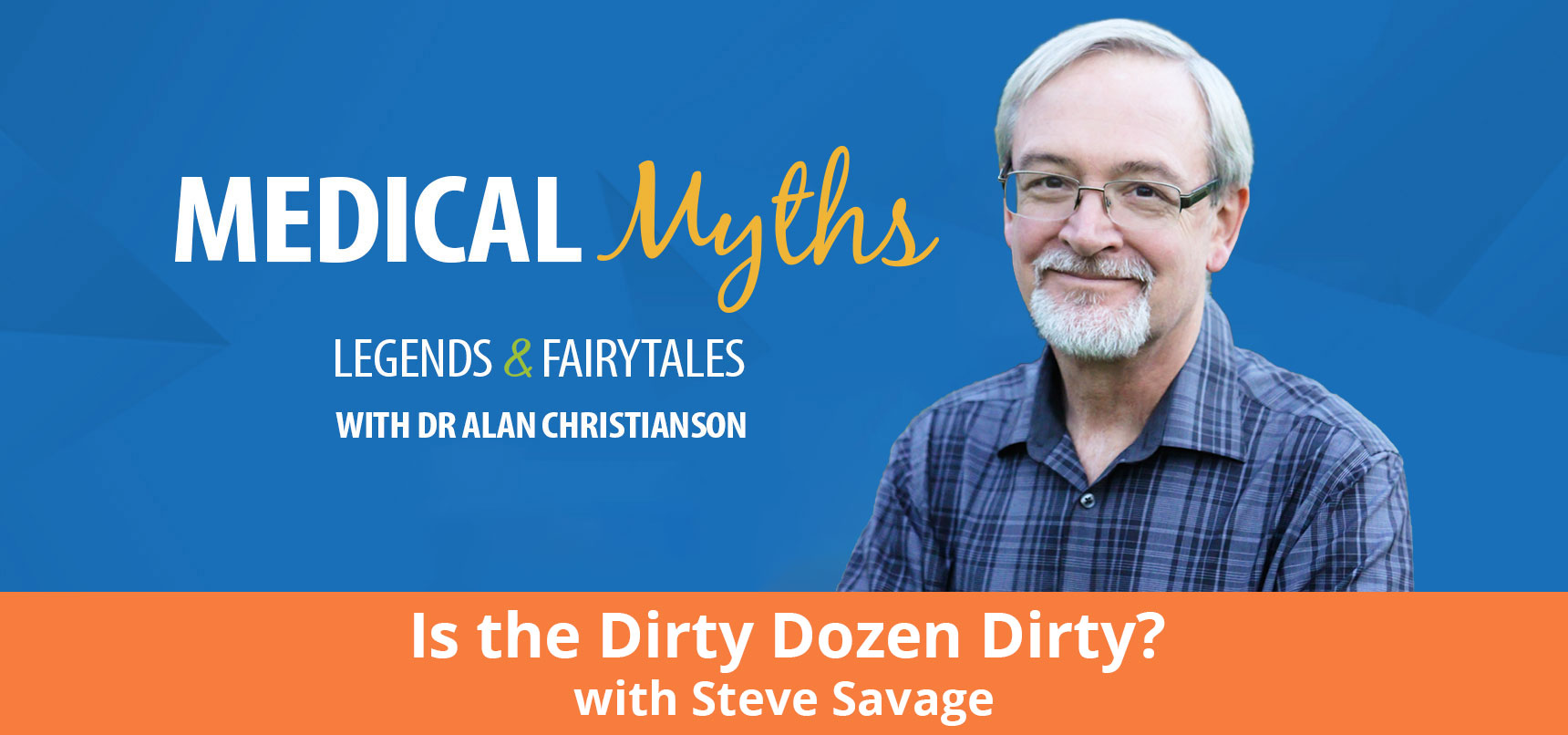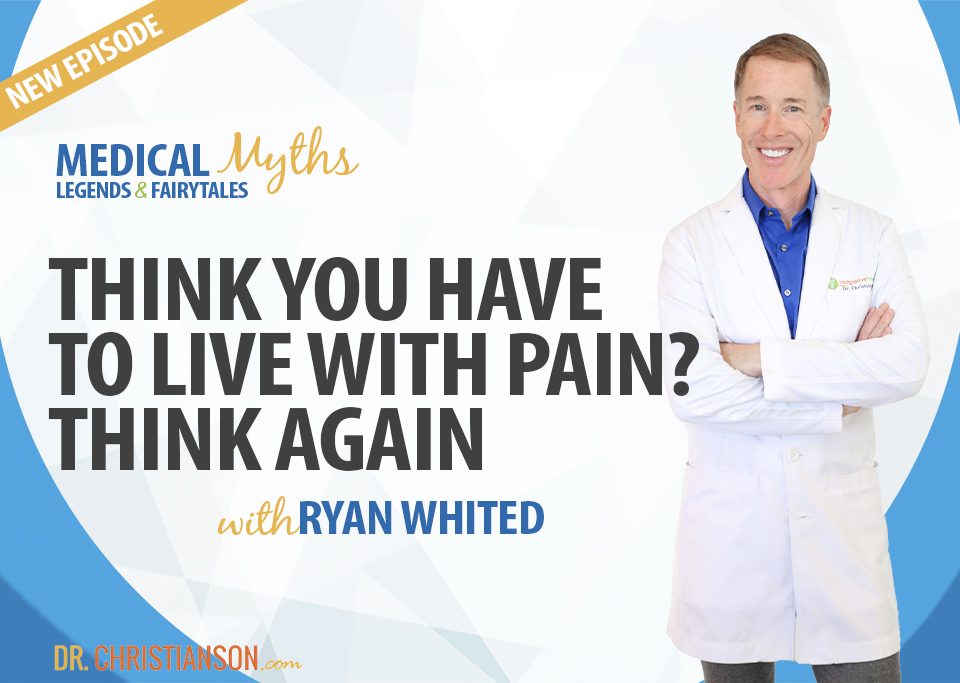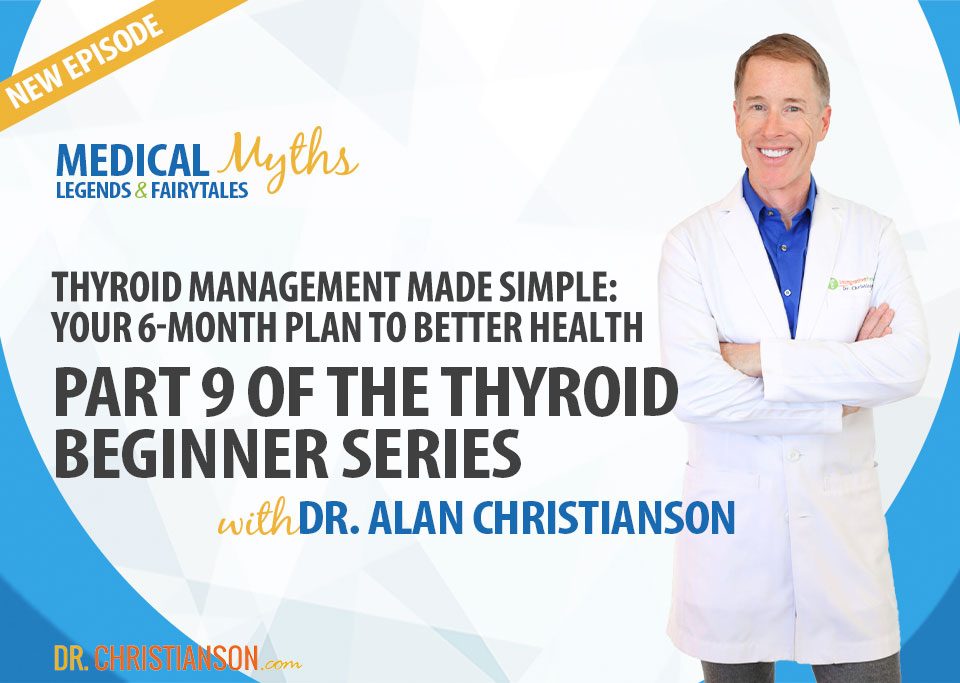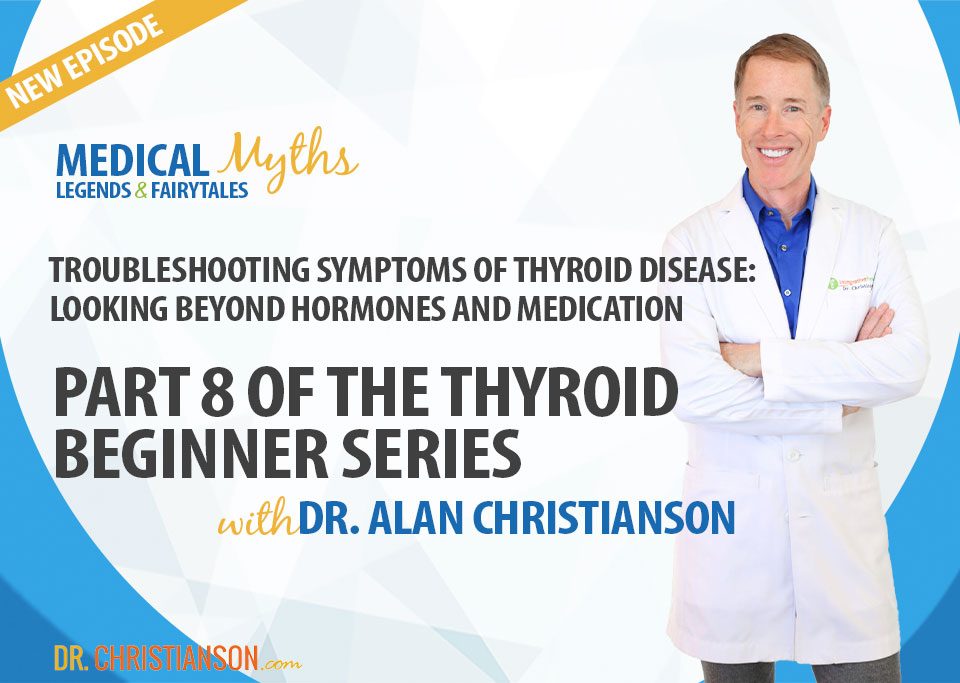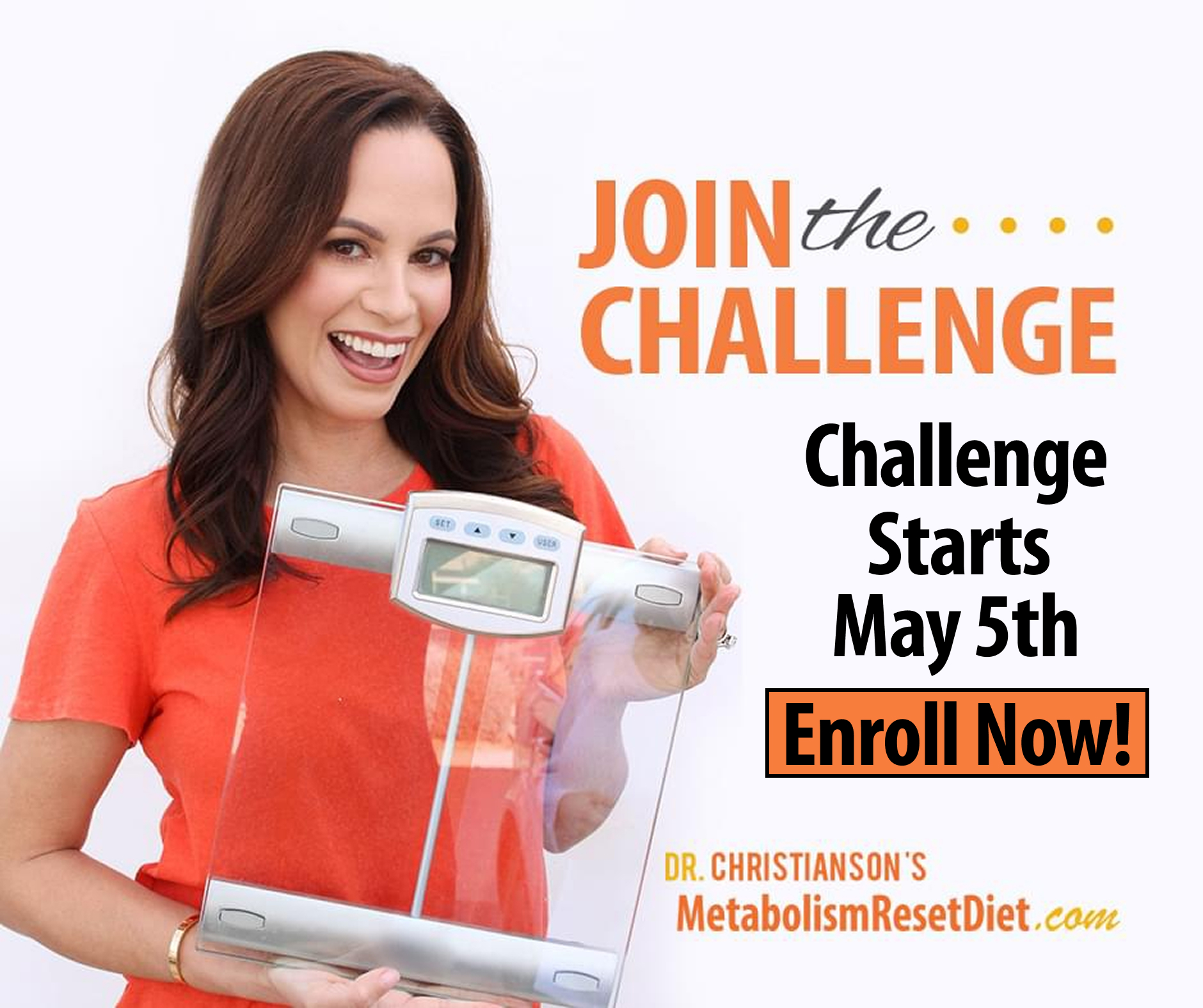Podcast – Is the Dirty Dozen Dirty with Steve Savage
Description: Between the latest online fads and the crazy media headlines, it’s easier than ever to get confused about your health. If you want to make better decisions about your health today so you can feel better and live longer, you’ve come to the right place.
On this episode we’re examining the facts behind organic foods and pesticides — which pesticides are the most dangerous, what are the exposure limits for pesticides in the food system, and exactly how much better are organic foods for your health? The Environmental Working Group releases a Dirty Dozen list each year of the foods that are highest in pesticide residue, as well as a Clean 15 list that reports that which produce is the safest to eat. But many people don’t realize that these lists are changing and updated every year, and that the methods used to compile the lists may not be the most accurate or reliable approach to gathering this data. Regardless of the lists, there are persistent pollutants in the food supply, some that are even more prevalent in organic foods. How is this possible? How does the Dirty Dozen actually make their list? And how should we react to the information that we learn from it?
I’m joined today by Steve Savage, food scientist and agricultural speaker who has spent over 40 years communicating food issues to the public. Steve has joined me to help explain the relationship between pesticides, organic food, and the foods that have been deemed the most and least safe by the EWG. Dr. Savage and I are discussing the answers to these questions, as well as taking a look at USDA testing methods, overcoming the psychological fears that come with eating toxins, and the most dangerous toxin in food that is rarely discussed that you will want to be sure to avoid more than any pesticide.
Key Takeaways:
[1:10] Today’s topic is pesticides and the Clean 15, the Dirty Dozen and the logic and methodology that goes into compiling these lists.
[2:59] Introducing Steve Savage, food scientist and agricultural speaker who describes how the Dirty Dozen list is formulated each year and what its data really tells us.
[6:10] What levels of consumption are safe when considering pesticide exposure in produce?
[8:29] Creating the Dirty Dozen — Dr. Savage explains the process of turning the data set into the annual list — and the key indicator of safety that is ignored by the EWG.
[10:39] Why you shouldn’t buy solely organic foods if you are trying to avoid pesticides.
[14:28] USDA testing does not look for the pesticides that are naturally occurring in many foods, including organic produce.
[16:50] Overcoming psychological fears of the danger of ingesting toxic chemicals in tiny, non-dangerous amounts.
[18:20] The reason the Dirty Dozen and the Clean 15 are not accurate gauges of toxicity levels in foods may have something to do with who is funding the EWG.
[20:21] If you can’t afford to eat organic, should you stop eating fruits and vegetables?
[24:21] An overview of the types of pesticides that have been used in agriculture over the last several decades shows that safety improvements are continually being made, with one elemental exception.
[30:06] The relative toxicity of glyphosate and the results of it’s studies as one of the most highly tested pesticides in the world.
[35:09] Differentiating between risk and hazard — understanding how we can mitigate risks by controlling exposure.
[39:15] The dangerous group of chemicals that no one is talking about — mycotoxins — and how it affects organic foods.
[43:18] Why are organic almonds at the top of Dr. Savage’s lists of organic foods to avoid?
[49:04] Wrapping up with Dr. Savage — don’t believe everything you read on the internet, and further your understanding on exposure and threshold testing.
[55:22] Do you have a topic you’d like me to cover? Contact me on Facebook or Instagram using #medicalmyths.
To learn more:
EWG Dirty Dozen and Clean 15 for 2019
Guns, Germs and Steel:The Fates of Human Societies by Jared Diamond
The Risk Monger — Glyphosate and IARC
Tweetables:
“It’s frustrating that someone has taken the data [from the EWG lists] to sell organic food through fear.” — Steve Savage
“The government is being more transparent by showing you even miniscule traces of pesticides in foods.” — Steve Savage
“Most people think organic means pesticides are not used, but that is strictly not true.” — Steve Savage
“Considering the percentage of Americans that don’t eat the recommended daily amount of fruits and vegetables, the last thing we need is for anyone of any income level to be scared about eating them.” — Steve Savage
“Any dangerous exposures we experience are more relevant to what’s already in the plant than what’s on top of it.” — Dr. Christianson


